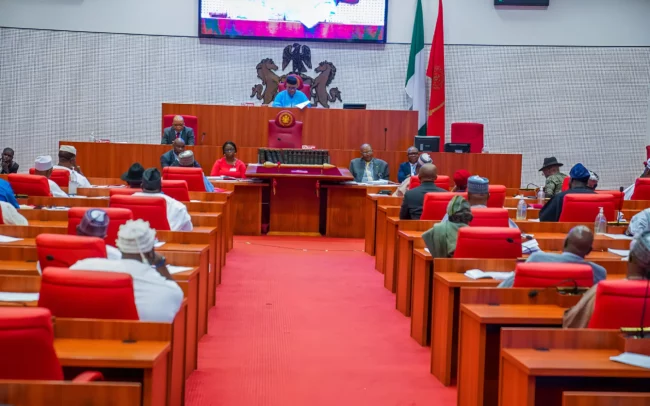The Nigerian Senate has successfully passed the National Anti-Doping Bill, aimed at domesticating the United Nations Educational, Scientific, and Cultural Organisation (UNESCO) convention against doping in sports.
This legislative milestone was achieved after the bill was passed for the third reading following the adoption of a report by Senator Kawu Abdulrahman, Chairman of the Committees on Sports Development and Judiciary, Human Rights & Legal Matters.
The primary objective of the bill is to establish the National Anti-Doping Centre, which will be responsible for combating doping in sports in line with the World Anti-Doping Code.
This Code is a fundamental document that sets the standards for anti-doping policies, rules, and regulations within sports organisations and public authorities worldwide.
It aims to ensure that all athletes adhere to uniform anti-doping policies, thereby maintaining fairness in sports.
The executive bill, which requires Nigeria to domesticate the UNESCO treaty, was read for the second time in May and has now successfully scaled its third reading.
This legislative progress aligns with the efforts to tackle the persistent issue of doping among athletes in Nigeria.
Last month, President Bola Tinubu urged the Senate to review and approve the bill, emphasising its importance in prohibiting the use of performance-enhancing substances by athletes.
Tinubu’s request was conveyed through a letter read by Deputy Senate President Jibrin Barau on the floor of the upper legislative chamber.
The President highlighted the necessity of establishing a legal framework for the formation of the National Anti-Doping Organisation, which is crucial for Nigeria to comply with the standards set by the World Anti-Doping Code.
“In accordance with the provisions of section 58 (2) of the constitution of the Federal Republic of Nigeria, 1999, as amended, I forward herewith the National Anti-Doping Bill 2024 for the kind consideration of the senate,” the letter reads.
“The National Anti-Doping Bill 2024 seeks to create an administratively independent National Anti-Doping organisation, which is a cardinal requirement for Nigeria to achieve compliance with the World Anti-Doping Code and the international standard for code compliance by signatures.
“The enactment of this vital legislation will also help Nigeria avoid the imposition of signatory consequences, the inclusion of laws of hosting and participating rights at regional, continental, and world championships or major athletic events
“It is my hope that this submission will receive the humankind expeditious consideration of the distinguished members of the Senate of Federal Nigeria for passage of the same to law before the Olympic Games seminar in Paris in July 2024,” Tinubu wrote.
ALSO READ THESE TOP STORIES FROM NIGERIAN TRIBUNE
